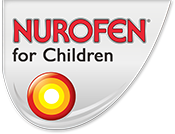Types of Headaches

Most of us will suffer from a headache at some point in our life.[1] Interestingly, even children can suffer from headaches, though most of us are unaware of this fact. There are more than a dozen different types of headaches that all have different causes. However, most can be treated with over-the-counter painkillers.
Different types of headaches and what causes them
Tension type headaches are the most common and what most of us consider to be ‘everyday’ headaches. The causes of tension type headaches are varied, but they can often come down to factors such as stress and poor posture. Frequent contributing factors are strained muscles in the neck, head and back. These strains can result in substances called prostaglandins being released by the muscles, and these stimulate pain receptors, so that you feel the symptoms of the headache. Children are prone to these when stressed.
Migraines are generally regarded as being more severe than tension type headaches. They are often accompanied by specific symptoms, such as an increased sensitivity to noise and light, as well as nausea and vomiting. The exact causes are not known, but changes in the chemicals and blood vessels in the brain could be contributing factors.[2] Some children may suffer from migraines.
As their name suggests, cluster headaches generally occur in clusters. Several may occur each day over a few weeks or months for example, and then stop altogether for a while. This type of headache is linked to the part of the brain called the hypothalamus, which plays an important role linking the body’s nervous system to other bodily functions.[3] If your child suffers from this type of headache, seek a doctor’s opinion as an underlying medical condition could be the cause.
Sinus headaches occur as a result of inflamed sinuses (the cavities behind your nose, eyes and cheeks). An infection, such as a cold, can cause the sinuses to swell, blocking the opening between the sinuses and the nose and causing a build-up of pressure. Facial pain and headache may both result with a more serious infection. These are known to occur in some children, though they are often rare.
Other causes of headaches include colds and flu, head injury, concussion and carbon monoxide poisoning.
How to help get rid of a headache
The symptoms of migraines can be treated with some over-the-counter medicines. However, if these do not help, then you might want to visit your pediatrician who can prescribe other types of medication
With a serious sinus headache, mucus trapped in your sinuses may have become infected with bacteria or they may be swollen as a result of an allergy. If so, the doctor may also prescribe antibiotics for the infection in addition to prescribing painkillers for your child’s headaches.
Even though there can be many different causes, the symptoms of the most common type of headaches, such as a tension type headache or a sinus headache, can also be alleviated by using over-the-counter medicines.
Alleviating tension type headache symptoms with Nurofen
Nurofen is one of the painkillers that's available over-the-counter. It contains ibuprofen as its main active ingredient. Ibuprofen has been scientifically established to act by inhibiting the formation of prostaglandins that can be produced when you are suffering from some of the types of headache listed above, such as tension type headache.
Your child can easily use Nurofen for their headache, but it is better to get advice from their doctor first. Take your child to the doctor if they have suffered a headache after a head injury.
[1]http://www.nhs.uk/Conditions/Headache/Pages/Introduction.aspx
[2]http://www.nhs.uk/conditions/Migraine/Pages/Introduction.aspx
[3]http://www.nlm.nih.gov/medlineplus/ency/article/002380.htm
